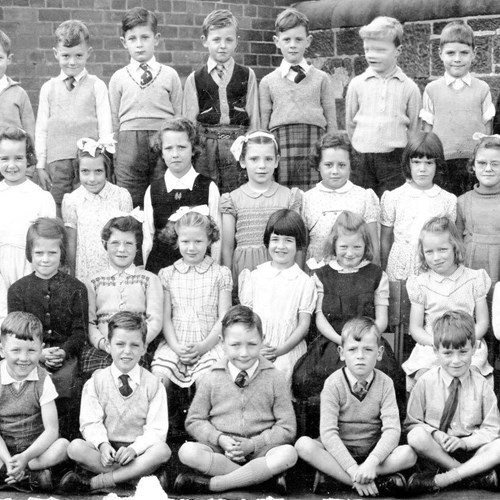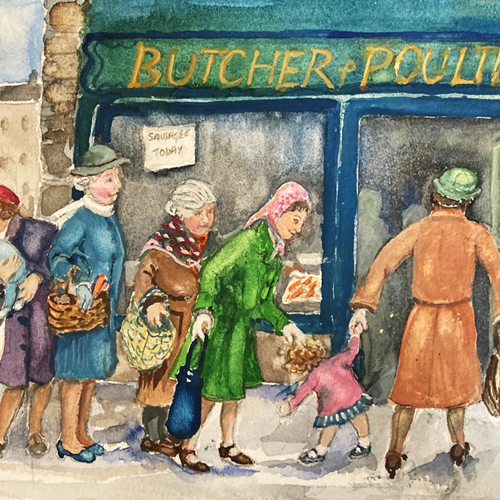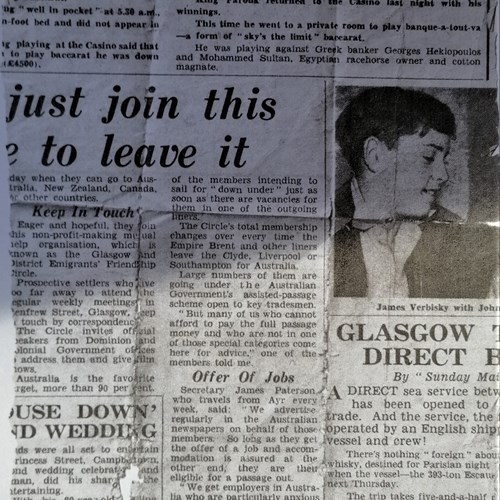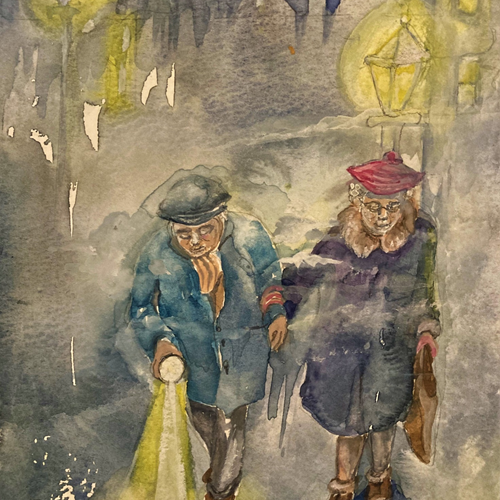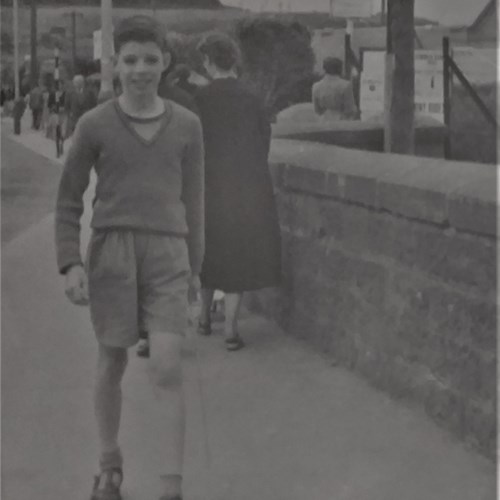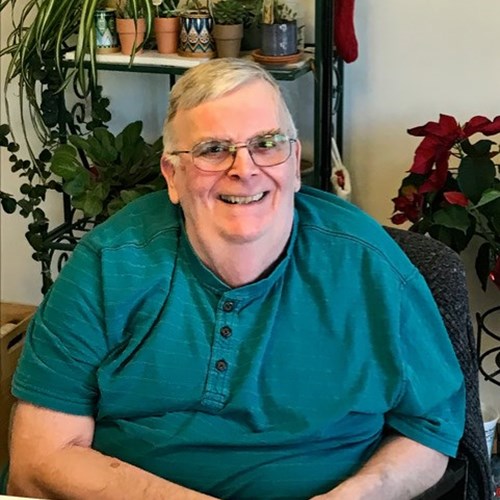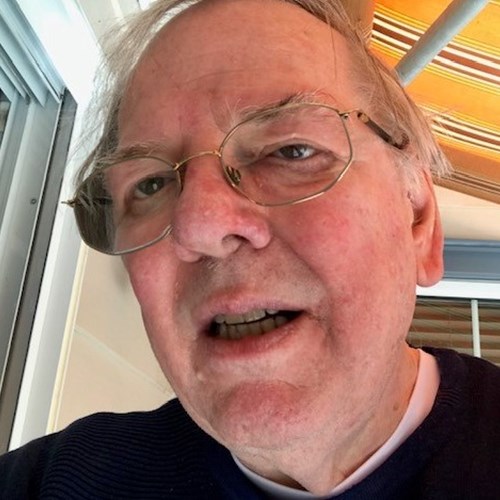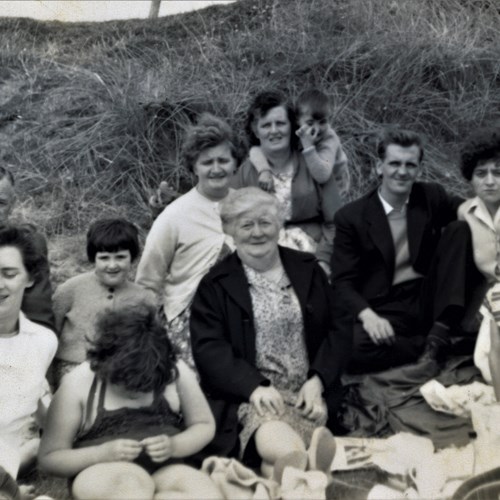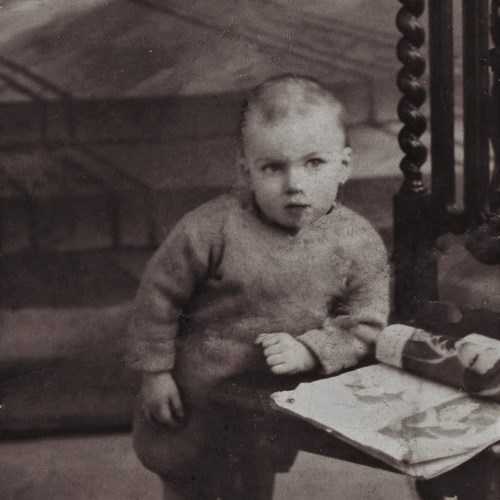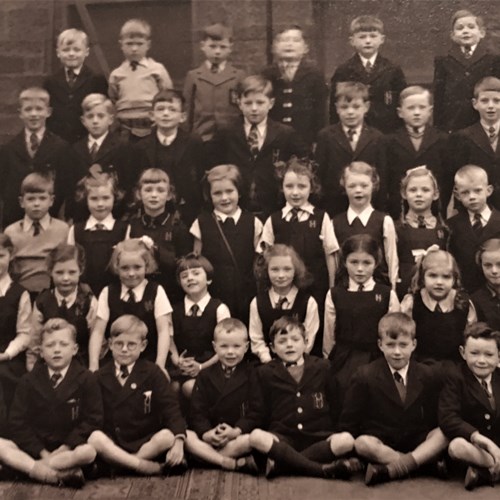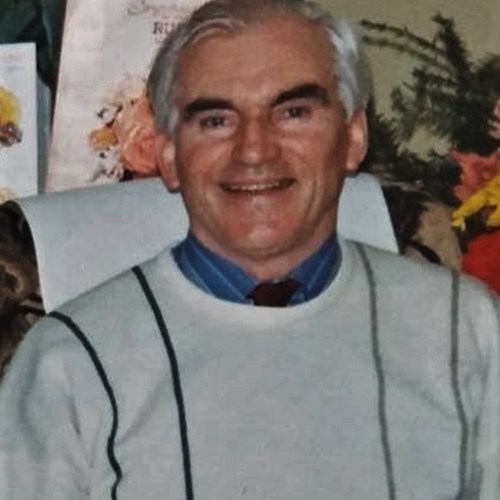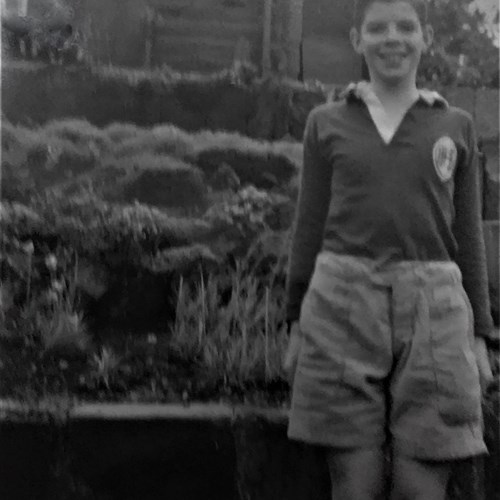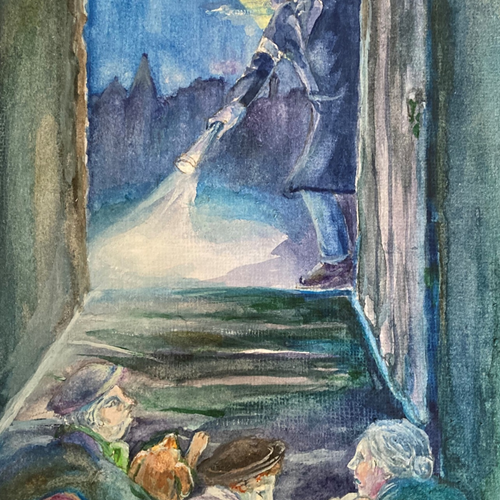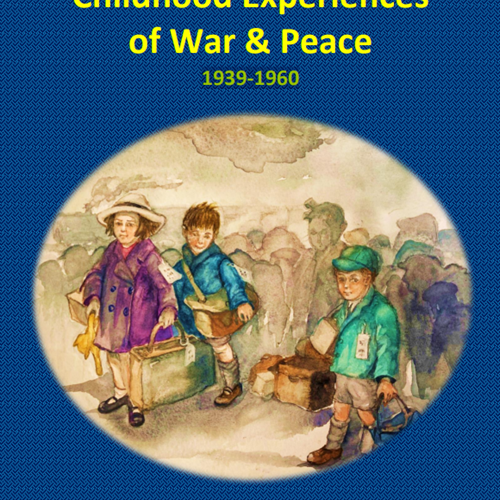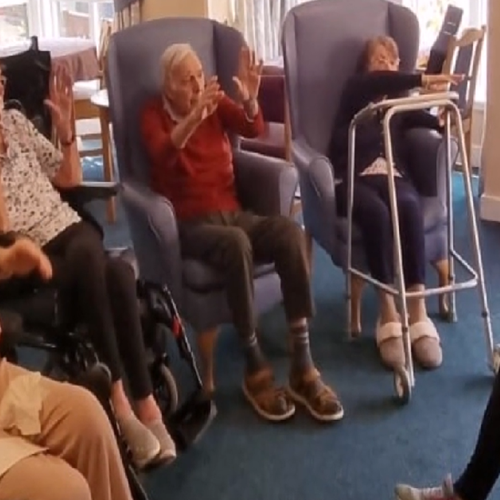
Holidays
People did go on domestic breaks during the war but not in substantial numbers. Instead, many towns organised ‘stay at home’ holidays, and organised a series of events for residents, such as gymkhanas, sports events, fancy dress parades, and bathing beauty competitions. Travel was difficult as many of the seaside towns in the East and West of Scotland were used for defence purposes (US anti-submarine bases were stationed at Dunoon and Lochgoilhead), and the Clyde steam boats or ‘steamers’ were requisitioned by the forces. It was also difficult to find boarding houses and hotels to stay in elsewhere, as many of them were being used to house military personnel. This was the case until the end of the war but holidays and day trips to the Clyde Coast and resorts like Dunoon and Rothesay became popular again after the war. The east coast resorts, including Arbroath, experienced a boom in the summer of 1945, and resorts further north, such as Buckie and Macduff on the Moray Firth, got more visitors than ever before, with some travelling from England.

At the start of the 1945 Glasgow Fair, 257 trains left the city for a range of destinations within Scotland. Foreign travel was still relatively rare as the immediate post-war situation was prohibitive, but Scots were able to return to their favourite English resorts, despite travel and accommodation costs being more expensive. By now, eighty per cent of workers in the UK had at least one paid week of holiday per year, and the number of holidays allocated to workers increased a little further at the start of the 1950s. As that decade went on, more people travelled south to holiday in resorts, such as Blackpool and Scarborough, which offered more varied forms of entertainment and variety theatre. Indeed, both of those resorts came to celebrate Glasgow Fair weeks – naming those holidays ‘Scots’ Week’, as so many Glaswegians visited the towns then.

Our respondents have described their travel experiences during the late 1940s and the 1950s. These included a broad range of destinations within Scotland; we have heard lots of stories of trips ‘Doon the Watter’, day trips and holidays to places like Rothesay and Dunoon, travelled to on steamer boats. Others took bus tours to places like Balloch, the Kyles of Bute, Ardlui, and Ayrshire. Others went further afield, to places like Arbroath, Stonehaven, Fraserburgh, Macduff, Buckie, Nairn, Fife and Portobello. Some stayed with family, some spent summers in family-owned or rented accommodation, such as houses and caravans. We heard of a couple of families spending their holidays in cottages on Arran, and one family travelling to stay in converted railway carriages outside Irvine. This is only a snapshot of the many destinations that our respondents visited during the late 1940s and 1950s. A few of our respondents were fortunate enough to go abroad during the 1950s, to places such as Portugal, Austria, and Italy. Others travelled with schools to Paris and to Switzerland. Scout trips were taken, and in one case they went to Norway. Another respondent travelled to Belgium, Dublin, and other destinations, as his father worked on the railways and the family got free rail travel. In general, though, most people did not start going abroad until the 1960s.
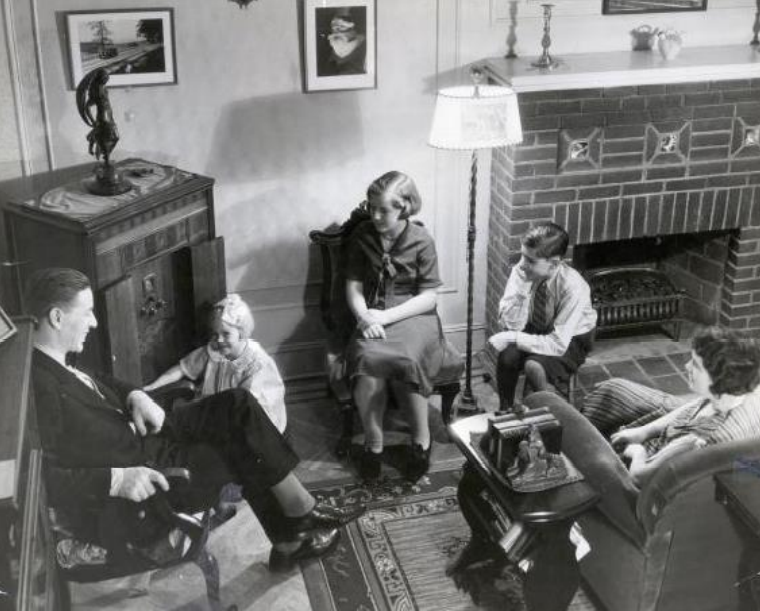
The Wireless
The wireless had been a major source of entertainment and information during the war years and this continued into the 1950s, when ownership and access to domestic electricity increased. Radio programmes remembered by our respondents include: ‘The McFlannels’, a very popular Scottish programme (1939- 1953/54) about a working-class Scottish family and their contemporaries - the posh McVelvets and McSilks, and the lower middle-class Corduroys and Canvases, and so on. The McFlannels spent the war years as the ‘McFlannels at War’, with story lines featuring rationing, blackouts and air-wardens. People also recalled: ‘The Man in Black: Dick Barton Special Agent’, a James Bond type of show; ‘Life with the Lyons’; ‘Tammy Troot’ from the Lavinia Derwent books and read by Willie Joss on Children’s Hour, which was on between 5pm and 6pm each evening; and ‘Journey into Space’. They also listened to sporting events, including boxing and football, amongst others.

The BBC had produced radio programmes specifically for women since the 1920s, these were promoted to housewives, mothers, and daughters, and included domestic advice and tips, but they also included programmes that interested women in the world around them. Direction shifted slightly during WWII and a range of talks and magazine programmes were introduced that were aimed not only at women and girls in the home, but also those working in the factory and in the forces. The intention, here, was to provide news and information, as before, but also to maintain women’s and girls’ morale.

Cinema, Theatre, and Dance Halls,
Cinemas continued in popularity during the 1950s, despite increased television ownership in the later years of that decade. Televisions were small, and the choice of programmes was limited, whereas cinemas, or ‘picture palaces’, were often seen as glamorous places (the odd ‘fleapit’ notwithstanding), where a modicum of escapism from austere times was possible for a few hours and for a small amount of money, or a jeely jar. Our respondents frequently went to the cinema, or the ‘pictures,’ as children and young adults during the 1940s and 1950s, and always talked about those outings with enthusiasm. They have told us about ‘kid’s clubs’, and rolling in the aisle with laughter, and in one case about sneaking in without paying. Popular movie genres included westerns, spy films, and comedies. ‘Robin Hood’, starring Errol Flynn and Olivia de Havilland, was a favourite for many children, as was ‘Tom Sawyer’.
The 1950s saw the last great days of variety theatre in Glasgow and surrounding area. There had been a great tradition of variety theatre performance in the Clyde’s coastal resorts, as well as in the city. Television and the decline of domestic resorts (which materialised when Scots discovered cheap flights and ‘all inclusive’ holidays abroad), meant that a lot of theatres closed in the 1960s. Some music hall performers, like Stanley Baxter, Una McLean, Rikki Fulton, and Jack Milroy, went on to gain further fame in television. Additionally, going to the theatre was expensive, and not all of our respondents were able to go there; though a number went to watch pantomimes at Christmas. A couple of our respondents participated in singing and dancing performances at Glasgow theatres during this time.

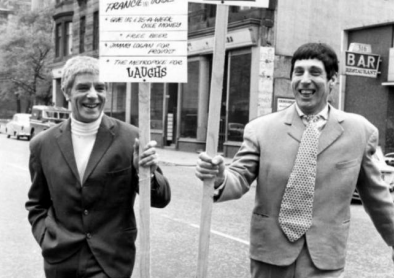
One of our respondents described dance halls as ‘all the rage’, and probably where most people met their friends or sweethearts. He and another respondent remember tennis dances in areas like the West End of Glasgow. He mentioned the famous Locarno in Sauchiehall Street, as does another respondent, who also remembers going to Glasgow from Clydebank to visit the Barrowland Ballroom, the Majestic or ‘Magic Stick’, F & Fs in Partick, and the Denniston Palais where they would do the Palais Glide, made famous in the Matt McGinn song ‘The Wee Kirkcudbright Centipede.’ He also spoke about the number of good dancers there were, and the importance of dressing up for the occasion.
Other popular leisure activities
Ice rinks like the ones in Crossmyloof and Paisley, were popular with the young, especially on Saturday mornings. Rinks rented out skating boots, and luckier skaters could buy a pair at Lumley’s and other stores in Glasgow. A couple of respondents took part in sports activities, such as football, rugby, and cricket, both at school and in local parks. Two respondents have spoken of playing the bagpipes, a passion which continued beyond their school years. Another couple have talked about the importance, during this era, of visits to swimming pools, or swimming baths as they were known.
Parks in Glasgow contained a number of activities for children and adults. We have testimony about trips with Sunday schools from the Gorbals in the 1940s, on horse-drawn, ribbon-bedecked lorries, to one of the many Glasgow parks. The kids would get a packed lunch and have races in the park. One respondent reported that the trip felt much, much, longer than it actually was.

We heard from another respondent about attending the shows on Glasgow Green, the oldest public park in Britain, during the 1950s. She told us that there were many things to see and do for children and adults, including a mini circus, boxing bouts, and dancing girls. She also remembered getting three pence back on a bottle of juice to use for her entrance money to the shows.
A wide variety of bands played during the 1950s at bandstands like the ones in Queens Park, in the city’s Southside, and at Kelvingrove in Glasgow’s West End. Music genres included rock, skiffle and Scottish country dance bands.
Youth Culture
By the mid-1950s, the standard of living for most of the population was higher than it had been at any time in memory. Post-war consumer culture now included not simply the canned food and cheap clothing but also household appliances and automobiles. Average weekly earnings rose 50% between 1950 and 1955, during which the cost of living rose by 30%. Full employment was the norm, so the rise in living standards was not limited to certain industries or certain regions. Until 1970, the level of unemployment rarely rose above 2%. Harold MacMillan told an audience in 1957 that: ‘Most of our people have never had it so good’.

The direct implications of this statement are clear, from an economic perspective. Britain was a nation finally shaking off the doldrums of post-war austerity, with rationing (abolished in full by 1954) becoming a rapidly fading notion with staple food now cheaply available, the luxuries and conveniences we now consider to be the central appeal of modern suburban life were becoming widespread. The shift towards increasing leisure time, particularly with regards to women, was significant. Fashion once more became important, though many women still made their own clothes mass-produced clothing became readily accessible and affordable; shopping outings with friends was popular. The burden of domestic drudgery was lifted by labour-saving devices, such as automatic washing machines (introduced to Europe in 1951) and electric steam irons (1952), was symptomatic of an increasingly affluent middle class. However, popular culture both reflected and challenged MacMillan’s statement.
Radio had been crucial in keeping up morale during WWII, but in the 1950s this was eclipsed by television – owned by 5 million families in 1956. The BBC was committed to a particular kind of moral and educational programming in both its radio and TV broadcasts. Millions tuned in to watch the coronation of Elizabeth II, giving the event a unique sense of immediacy. Millions also tuned in to watch sporting events such as rugby, football and tennis – the downside of this was that spectators became armchair fans, and the number of members attending sports clubs declined precipitously during the late 1950s and 1960s. Similarly, the popularisation of TV drew audiences away from the cinema, leading to a decline in cinema attendances.
In literature and drama there was an outburst of the ‘angry young man’, filled with often brutal portrayals of post–imperial Britain. At this point, there seems to have been two warring perceptions of both Britain and Scotland: firstly, that they were changing beyond all recognition; secondly, that they weren’t changing at all, but were instead mired in their own past and were therefore class-bound, rigid, and industrially backward – without any outlet for the creative and chaotic impulses of its young men and women.
By the 1950s, our wartime children had become teenagers and young adults. Musically, swing was still popular, and youngsters loved watching and listening to big band musicians at dance halls and ballroom such as Majestic, Astoria, the Locarno, Dennistoun Palais, and the Barrowlands, all of which had resident orchestras. Bill Fanning and his orchestra, pictured, were popular in Glasgow clubs in the 1950s and into the 1960s, including the Queen Mary Jazz Club, in West Nile Street.
However, many young people, of all classes, began to chafe against the trappings of the new post-rationing affluence that appeared to characterise all levels of the economy: abundance fuelled discontent. That was then articulated in a youth culture that appeared to reject all restraint in behaviour, dress and entertainment. Historians debate when exactly a socially distinct youth culture emerged; some argue that the teenager came into being in the 1950s. Created through a combination of the post-war baby-boom and the end to both rationing and 'utility lifestyle', teenagers had spending power, their own ideas, and a sense of optimism and determination that their parents had been denied. In any event, the Scottish music scene became very eclectic, with big band swing, folk music, jazz, blues, skiffle, and rock 'n' roll, all vying for supremacy.

The folk-song revival of the 1950s and early 1960s brought to Glasgow entertainers like the Ian Campbell Folk Group, The Clutha, and Matt McGinn. These were especially popular amongst young people who were politically aware. Meanwhile, Skiffle, which originated in the United States, became extremely popular over here in the 1950s, Lonnie Donegan led the Skiffle boom in the UK, where it was also played by The Vipers Skiffle Group, Ken Colyer, and Chas McDevitt. Skiffle was a major part of the early careers of some musicians who later became prominent jazz, pop, blues, folk, and rock'n'roll performers, including Cliff Richard, Tommy Steele, Adam Faith and Billy Fury, who later put British rock 'n' roll on the map.
Suddenly, youth music had gotten fast. Music had become sexy. Rock & Roll had been loitering on the fringes since the late 1940s, and now came to the fore. It has been argued that the onset of American popular culture on British youth was very difficult for the mainstream establishment culture to absorb. Nevertheless, rock 'n' roll was here. Its immediate lay in the rhythm and blues, with either Boogie-woogie and gospel, or country music. It was influenced by jazz, blues, gospel, country, and folk. Leading American entertainers included Bill Haley and the Comets, Chuck Berry, Bo Diddley, Fats Domino, Little Richard, Jerry Lee Lewis, and Gene Vincent. Of course, there was also Elvis, the hip-shuggling dynamo who became the undisputed King of rock ‘n’ roll. And yet, during this same period, accordionist Jimmy Shand scored a hit with country dance classic, ‘Blue Bell Polka’, the same year as Bill Haley’s ‘Rock Around The Clock’, and a kilted teenager from Leith, called Jackie Dennis, made it to American TV with songs such as ‘La Dee Dah’ and ‘Purple People Eater’. Notably, Scotland's biggest musical hit of the era was ‘Hoots Mon’, an instrumental featuring ‘mock Jock’ interjection by Lord Rockingham's XI; this stuck at Number 1 for three weeks in 1958.
There is no denying that Scotland’s leisure and music scenes were incredibly diverse in the wake of WWII, with Scottish youngsters leading the vanguard to change. Whether or not those changes were for better or worse is for you to decide!
Childhood Memories
“Leisure and Cultural Activities”
My Granny was one of them (homeless during the war) and she had about four of a family still staying with her. They were quickly rehoused in Old Kilpatrick. I do remember somebody taking me up to Clydebank. And I remember a tenement had been sliced down by the bomb and I thought it was very funny because there was a toilet, a lavatory pan, just at the edge where the bomb had split the building.
Our house had blast damage but we were able to go back to it after a couple of months. I remember there was a big hole in one of the internal walls and this is what it was. It was blast damage.
Elma Robertson, born 1936, brought up Old Kilpatrick
Well, it had two bedrooms one living room and one bath. It was quite a good size bathroom back then. And we kept the coal in a cupboard. The coal man would come with a coal bag on his back. We also had a coal bunker outside. We had no fridge until I was almost twelve. We got a very small refrigerator. I shared the room with two sisters. And we had a sitting room and my parents would sleep on a pull-out couch. Settee. It was a nice house. I was very happy there. And you know it had a nice yard. The people upstairs had the side yard.
Rene Walters (nee Catherine McMenamin), born 1938, brought up in Dumbarton
The Aberdeen holidays was either out Deeside, that way. When we moved to Glasgow we went back to Aberdeen once, and my parents said they were never going back for holidays because they had to spend their time visiting people and didn’t really get a break.
My Mother had to go in for a fairly serious operation that was 1951/52 and my Father took my brother and I doon the watter and away days here and there because my Mother wasn’t fit.
After that we went to Aberdour to a hotel on the Fife coast and we did that for two years. In ‘55 we went to Stonehaven and it was a wonderful summer of weather, I remember that but that was Glasgow Fair and it was the last time my Father ever took holidays in Glasgow Fair because he met a whole lot of people. In those days, a lot of Glaswegian people went to the North East on holiday and Stonehaven also had an open tennis tournament so there would be people up there. The other thing I remember up there was the open-air swimming pool and it’s one of the last three still open in Scotland. 56/59 we went to Rockcliffe on the Solway and we’d go the first fortnight in July.
In 1960 I went with the school to Brittany. And then my parents were in the Lake District and I got off the train at Carlisle and joined them. The last family holiday I went to was to the Cotswolds to Moreton on the Marsh in 1961.
Kenneth MacAldowie, born 1944, brought up in Aberdeen and Glasgow
My Dad on a Saturday morning would take me down to Buchanan Street Bus Station. And they used to have coach tours and there were these sandwich boards all along the bus station area for day trips and you could go to the Trossachs, the Kyles of Bute, Balloch, Ardlui. And you could go down and get on the Waverley the paddle-steamer, Helensburgh, Ayr, Ardrossan. You could go all over the place on these coaches and he never knew where we were going. We got to Buchanan Street and he used to call me Champ and he’d say, ‘Where do you want to go to Champ?’ We had lovely days. I remember going to somewhere like Helensburgh and the weather was somewhat inclement but we’d always manage a game of pitch putt by the seafront, him and I in his trilby, he wore a trilby hat all the time. And I always remember the rain pouring off his trilby hat as he leaned forward to putt his shot on the course. We didn’t mind about the weather. We then had lunch in a café on the seafront and it would be egg and chips. And then eventually we’d meet up with the coach and get back home for about six or seven o’clock in the evening.
Ian Coombe, born 1942, brought up Gosport, then Glasgow
I first went abroad probably when I was about 18. I had been working in Butlins Holiday Camp forsix weeks in between my fifth and sixth year at school. And when I was there, I met a Malayan girl who was studying Physiotherapy in Glasgow and I met some Finnish people and they invited my Malayan friend and I over to Finland for a holiday. So, the next year we flew out to Helsinki and we stayed for a couple of weeks that we met in Butlins and then we set off and we hitch-hiked up over the Arctic Circle. And then we hitch-hiked back down through Sweden then back to Glasgow. And the girl that we stayed with in Finland was called Tarja Halonen and she became the President of Finland. I met her when she worked as a cleaner in Butlins Holiday Camp in Minehead, and she ended up becoming the President of Finland. So that’s my claim to fame.
That was the first time I went on holiday under my own steam but when I was fourteen, we went on holiday to France with the school. We had a school trip to Paris. Yeah, that was the first time I went abroad…was a school trip to Paris. That was good fun. We went by train and over the ferry across The Channel. And then the train to Paris, And then we had…I’m trying to remember how long we had there, it was at least a week I would say. And we stayed in a... I think what was normally a sort of boarding school there. But of course, it closed for the summer. And that was very nice. We did all sorts of sight seeing all over Paris. We had taken a river cruise, we were up the Eiffel Tower, Sacre Coeur, Notre Dame. We had a reception in the Mayor or the equivalent of the Mayor in Paris. Gave us all a reception in the town hall. So yeah, it was great fun. I had a really nice time. It was really good, yeah. And it was a great opportunity you know to travel. I think it cost my mum and dad about fourteen pounds. I seem to remember that figure. So that was what they had to pay towards the trip. But it was a great experience and I think it did give me a kind of a travel bug. Because I spent most of my holidays after that hitchhiking around Europe. So, I think that trip to Paris and the Geography teacher we had gave me a travel bug. And I’ve still got it. Obviously (laughs).
Marlene Barrie, born 1946, brought up in Scotstounhill and Blairdardie
The apartment had a recess bed, two chairs, sink. You had to wash at the sink. We had like a little zinc bath that my Mother used to bath me in. When we first moved to that house, my Mother was delighted getting a room and kitchen. It was two nice big rooms and the hall had a bunker in so that was good and my Uncle helped us with the flitting. He had a coal lorry, not that there was much to take, a mattress, a couple of chairs, a sideboard, a table. How we had all that in one room…however, that was the stuff she got taken up. So, we decided I was to sleep in this recess bed in what was to be the kitchen. We had a big range. The next day I was itching. There was bugs, there was bed bugs. They live in the wall and infested our things, so it all had to get thrown out. So we didn’t have a bed. So the sanitary men came and put paint on the walls, like green paint, inside this bed recess. I think it had something DDT in it or something like that and that cured that problem. But she had to get a bed. Somebody said you can have this, it was like an iron bedstead, like an old brass bed. It would cost a fortune now. So that was in the front room this great big bed and then she had to get a mattress. She went down to the Co-op in Bridge Street and saw she couldn’t afford one. A man took pity on her and said ‘look we’ve got one here but it’s got a bit of oil on it so she got it for a cheap price.
You know, I can remember washing my feet with my socks on to get them clean at the same time. That was in the room and kitchen.
We had to use a potty, a chamber pot, and it got emptied in the morning. There were three families in the stairs and the people in the middle. My Mother reckoned the father had T.B. and she didn’t want us using the toilet. She cleaned it and all that sort of thing. But she didn’t want us using it.
Cecilia Murray, born 1942, brought up in Gorbals and Castlemilk

David Walker on the left with his Uncle Roland and cousin, Doon the Watter. Courtesy of his daughter Alison Finlay
There was two places that we went to. We went to Dunbar a lot on the east coast and we went to Prestwick. And I think I was taken to Aberdeen once and I was very young then. I don’t remember if it was a bed and breakfast but our room was on the top storey, and the little bed that I had, the mattress made the most funny noise when you lay on it. And I’m pretty certain it was straw that was in it. It was some sort of rustley material that was in it. The one memory I have of the Aberdonian holiday, and not a good one I might add, was that my Mum and Dad took me to see a Norman Wisdom film and my Mother laughed so much that she started to cry and she took my Father’s hankie to wipe her eyes. Forgetting that he had cleaned my feet at the beach and the hankie was full of sand. And she ended up in the Infirmary at Aberdeen because her eye was full of grit.
The Dunbar holiday we went to Dunbar for years. Dunbar had an outdoor swimming pool which was actually filled at high tide by the sea. So not only did you have salt water but you had seaweed and crabs and various aquamarine animals that could join you on your swim.
Prestwick, that was later on. There was a lovely outdoor pool at Prestwick but a modern pool properly cleaned and everything.
So, these were the two places my parents took me and I don’t think even when I left home, I think the furthest they ever went was the Isle of Man. Apart from my Father’s time in the army. My Mum was never overseas. Never abroad.” “I started travelling when I was 16-17 whenever I had a job, I was desperate to see Europe and my very first holiday was L’Estartit on the Spanish coast. It was very near Lloret de Mar. I smoked then and I remember you were able to smoke on the plane with an ashtray in the seat handle. I went with a friend for a week and thought this was absolutely wonderful. There was certainly no factor 50 in those days, we bought the Spanish suntan lotion which was olive oil and vinegar mixed up in a bottle, so not only did you stink, but you burned to high heavens as well. Happy days indeed.
Heather Bovell, born 1948, brought up in Gilsochill, Maryhill
Because my Father was in the railway, we got free passes. We went to Belgium once and I think I was nine or ten. And I think all they paid was the Channel fees for crossing from Dover to Ostend because it was still British Rail train ferries as well. We went to Dublin, Blackpool, all these places and it never cost anything for travel. My Father, he was still in the Army Reserves, I suppose they call it the Territorial Army now. And he used to take his holidays from work so that he could go to the annual T.A. camp. So, he’d get his holiday money from his work and give that to my Mum that was for our accommodation and spending money. Because when he was away with the Army for two weeks, he was getting Army pay and he was away with all his pals. And that’s how we could do it, it didn’t cost any money for transport. It was more than a lot of my peers did. We used to go to Millport, Rothesay and then on Sundays nearly everybody in our street in the summer holidays, it was Saltcoats we went to because everybody’s father worked on the railway. So, everybody had a free pass.
Sandy Boyle, born 1948, brought up Maryhill
We had a butt and ben, we didn’t own it, we just rented it and I think it was in Largs way. I can only vaguely remember it. My Mum was down with us and Dad used to come down at the weekend after he closed the shop.
The first proper holiday I was at Shawlands ,so I was more than eleven, and my Mum and Dad paid £30. An awful lot of money. And I went with the school to Paris for three weeks.
Philip Cohen, born 1937, brought up in the Gorbals and then Shawlands
We’re not as young as we were then, but still we did lots of things then. We started our travel probably and we spent our honeymoon in Djerba in Tunisia, a little island off the Tunisian coast. And the whole honeymoon for three weeks was seventy pounds, including the flights and that included the hotel and everything. For the two of us it was seventy pounds. Seventy pounds then was more than it was today, but it was still pretty reasonable.
That would be in February 1965 and we were looking for some place to go to in February that would not be rainy and dark and so forth. So we were lucky it was possible to go there then. Places in North Africa and the Middle East are not as comfortable to visit now as they were then. So, we had opportunities to travel then that we took advantage of.
Our family holidays I remember were in Carradale, down in Kintyre north of Campbeltown. And we went there for a few years and I have wonderful memories of family holidays there. We got the chance to go out one night on the herring boats. Charlie that we lived with had his own herring boat. And the boats went out in pairs for ring-netting. And one night my Father and I went out with him and we saw the herring being caught and then being brought in and you had breakfast in the morning on the ship, fresh herring, and it was a wonderful memory. We also went to Brodick in Arran
My first overseas holiday was with the boy scouts’ troop and we went to Norway. The whole troop went to Norway. We took the train down to Newcastle and then we took the boat from Newcastle to Bergen and we travelled there by train to the middle of Norway to a little town called Litheall. And we camped with a troop from Oslo and so we met some Norwegian Scouts there and at the end of that we travelled into Oslo and we each were billeted with one of the Norwegian Scouts. And so we spent a few days with our hosts in Oslo so we could see a little bit of Oslo then. So that was my first overseas trip. So that probably gave a bit of a sense of wanting to do some travel. I think the next one was a school trip to Interlaken in Switzerland in 1955\56 somewhere around then. Train travel, across the Channel and then train from there into Switzerland and that was another overseas trip. But other than these they were all mostly in Scotland and holidays and things like that were in Scotland.
Hugh Livingston, born 1940, brought up in Hyndland and Fintry
It was a house and they called them a garret, on the roof. It was a house like that. I don’t remember how big it was. My older brother he stayed in it with my Mum and I and my brother Joseph. He was born in Rothesay in 1944, so it was obviously not a bad size.
Right across from the house was a school that my brother went to. I was too young to go to school.
I remember there was a wall in front of our house and I fell off this and broke my arm.
I remember the Castle it wasn’t far from us.
James McLaughlin, born 1939, brought up in Clydebank and Rothesay
Coming from the middle of the city it was fantastic down there and where this place was you were about a mile from the beach at Irvine Bay. Where this hut of my uncle’s was, was right at the very back of the facility. And over the fence you had cattle coming along, cows would come along to the back fence and feeding them with old bits of bread and stuff like that. That was the ‘40s.
I remember as a teenager going to the Youth Hostels with people I worked beside and going cycling holidays. I mind doing that around Scotland to the Youth Hostels. And I mind one time a couple of us, we hitch-hiked around Scotland, again to the Youth Hostels.
It wasn’t until about 1960 with a bunch of guys, we went to Morecambe one year and another time we went to the Isle of Man. Which was the normal for the Glasgow Fair when everybody just left the city.
Again, that was before people started to do foreign holidays. In the early ‘60s you had to be a member of an organisation. In 1961, me and my Mother flew to America where my older brother was staying and I went again a couple of years later with these charter flights.
Alf Duffy, born 1940, brought up in the Gorbals and Pollok
We went to Portrush. We went to Scarborough. We went to Filey. We went to Jersey.
My Dad’s family I think originally were from Ireland. He knew Portrush, Carrick Fergus and the Giants Causeway. And he was quite anxious to take us there and that was when we went over the border to get the sweets. I remember a girl on the coach sitting on a pound of boiled ham she had in a parcel. At the border, the customs came in to see if you had anything to declare. And she was frightened they would take this boiled ham, so she sat on it.
Grace Wilson Blair, born 1935, brought up in Shotts
Before the war and after the war we used to go to Kinghorn on holiday. I think we went once during the war and I remember the beach being covered in oil and you couldn’t really play on the beach. But after the war we went back to going to Kinghorn. We’d go on the train and throw a penny over the Forth Road Bridge for luck. I remember there being a camp in Kinghorn for Polish soldiers. And there were a couple of camps in Old Kilpatrick of Polish soldiers.
Elma Robertson, born 1936, brought up Old Kilpatrick
The holidays would consist of going out to Stirling to my Aunties. We used to go to London as well and my Mother would come with us. Sometimes when I got a wee bit older I used to go myself in my teens when I was fifteen/sixteen. They would put me on the midnight train, it was a corridor train, a steam train and it took about fourteen hours to get to London believe it or not. Because I think it would stop for about an hour to let the ones that were in the sleepers to fall off to sleep and then it would start again plus they would do the same at, I think, it was Crewe to help them to waken up. It was some journey.
James McLaughlin, born 1939, brought up in Clydebank and Rothesay
Anstruther. We went to a caravan because you could keep your eye on the kids and it was a change of things when I look back on it now. Eventually we went to Ibiza. We’ve been to Spain and various places like that but mostly it was the caravan in Anstruther. And St Andrews was brilliant as well because we had the car by then. And we had a cousin in Tynemouth between Whitley Bay and North or South Shields and she had a lovely big house down there so we used to go down there and stay with her sometimes, so that was good, and I had quite a lot of relatives down Newcastle way. We squeezed in a lot of visits and we went to North Berwick, Primrose Valley, Spain, Greece. We’ve done alright.
Cabreg, born 1935, brought up in London Road, Glasgow, and Pollok
My Father took my brother Alan and myself on Camping trips away up north to places like Gruinard Bay and Sutherland. My mother's father Duncan MacCallum was a native Gaelic speaker and the areas we visited contained a large amount of Gaelic speakers. Indeed, on one holiday in 1955 in Skye we visited friends of a friend of my father and two of the older folk present could not speak English at all. The people we knew in Gruinard Bay, their old mother had very, very limited English. It was not necessary in a largely Gaelic speaking community. Fast forward to 2020. All the areas in Argyll which were Gaelic speaking in my younger days are no longer so, they don’t in many cases have any Scots people in them anymore. When a language is not spoken in the playground any more it will die, and that I am afraid to say is what is going to happen to Gaelic. It will be used as an academic language for reference purposes only.
My pals in the local Scouts were adept at making "twist" bread over a fire on a green stick. We BB boys were just as good. We had graduated to sausage, bacon and eggs for our camps. We (BB) boys hiked all over the Trossachs area. One of our favourite areas was going over Ben Lomond and either down the lochside to Drymen and home or over to the Kinlochard road and to Aberfoyle on the bus. I have stood on the Aberfoyle bus soaked to the skin for the hour and a half it took to get home and a warm bath. The loveliest weekend was usually at the end of May and it was often sunny. There would be about twelve or fifteen of us older lads sleeping in three to a tent. I usually had a tent and stove to carry and my own cooking gear.
Colin Stevenson, born 1944, brought up Hillhead and Jordanhill, Glasgow
We had good family holidays in Argyll at Benderloch and Kilchrenan. Here my brother Alan and I caught many a handful of trout. Probably there are none left now because of acid rain from extensive forestry. My Dad still took us to Callander and we fished the River Teith.
Colin Stevenson, born 1944, brought up Hillhead and Jordanhill, Glasgow
Well, we went to a little village in Ayrshire called Dailly. And it was because my Grandfather had friends there. So somebody would rent out a room and we would go and stay in it. There was an ice cream shop there I can remember that because I don’t know how they did it, but sometimes they burnt the ice cream. But it tasted burnt but we thought this was great. My Mother and Father, rather than get a bus or a train we would walk to Girvan which is about five miles away. And we would walk up what they say was the high road on the way in. And then come back on the other road coming back after playing all day on the beach.
Marion Penny, born 1940, brought up in Townhead and Ruchazie
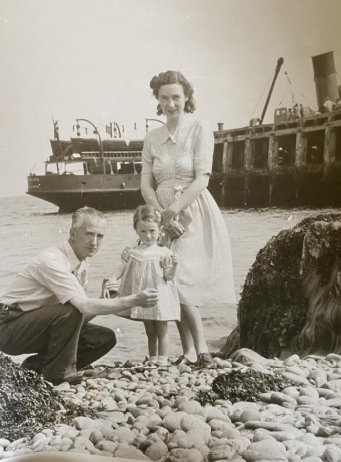
Christine McIntosh, aged 3, with her parents Daniel Findlay and Margaret Findlay ( no relation to Margaret Findlay, ambulance driver). Lochranza Arran, 1948
I was a member of a swimming club in Glasgow and I was really fond of swimming. We camped a lot with my father who had been in The Scouts. It was great and I took my own family away often in a tent. The girls played ropes in the street and, if we were favoured, we were allowed to “Caw" the long rope so everyone got a turn. We were out of doors nearly all the time unlike today where there are computers and video games. We really were pretty healthy. A lot of the boys were in The Cub Scouts and later The Scouts. Some of us others were in the Boys Brigade a more church orientated youth movement. I have never been a church member but our local company had a pipe band and that was for me...I suppose that we were a bit immature for our years, my parents had known the hungry thirties and did not wish to harden us up at all I think.
Colin Stevenson, born 1944, brought up Hillhead and Jordanhill, Glasgow
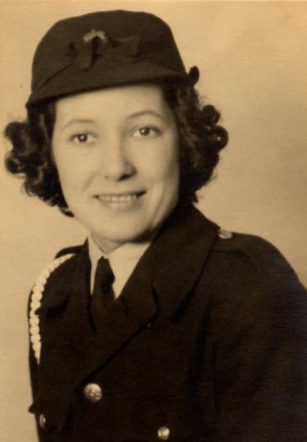
Margaret Findlay, ambulance driver (no relation to any respondent) during blackouts in Glasgow WWII. Courtesy of Carol Findlay
I know that I had a very privileged childhood because of my parents’ liking for escaping the city in the summer. In fact, I think we were climbing Goatfell in Arran when war broke out, when war was declared. So we all had eight weeks off school until I was fourteen. I regarded it as my second home. We started going abroad when I was fourteen and then we’d only take the Brodick house in August. And ended up going there until I was married. And my husband joined us for the last of such holidays.
Well, we first had a middle of a week in Paris. That was the first time. Because my mother thought I wasn’t doing well enough in French and she thought I should hear some real French being spoken.
And after that we went to Austria and Italy.
We very privileged because it wasn’t as popular as it is now. I know now that I had a lot of things that other people didn’t get. It was great.
Christine McIntosh, born 1945, brought up Hyndland, Broomhill and Arran
We never went on any holiday with my Mother. She couldn’t afford a holiday. But once I had to go with my Granny’s side. A couple of Aunties were going to Ardrossan and said I could go. And I went there and there was a lot of younger kids. I was a very quiet kind of kid you know and coming from a small family, there was all these kids jumping about and all that. My main memory was sitting on a bench at the sea front writing postcards to everybody on my holidays. I don’t remember much about it.
Cecilia Murray, born 1942, brought up in Gorbals and Castlemilk
It had to be during the war, I think. We took the train up to London. And there were a lot of soldiers on the train and they were sitting on the floors and it was packed. And my Father he got a little anxious because one of the soldiers was being very friendly to me and hugging me. And Dad didn’t like that. I remember him making us move. He was overprotective.
Rene Walters (nee Catherine McMenamin), born 1938, brought up in Dumbarton
I remember going on holiday. My Mum and my Aunt took us to Dunoon a lot. I don’t know where we stayed, it was in a boarding house. I have photographs because the photographers used to line the streets along the prom and take your photo, so I’ve got a couple of them. We went regularly to Dunoon.
M. McKinnon, born 1937, brought up Govanhill and Southside
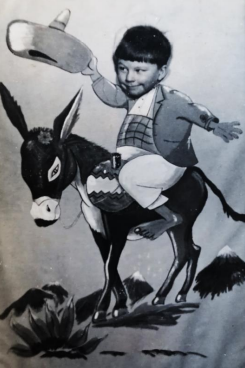
Graeme St Clair on holiday at Rothesay
When it came to holidays, I suppose I was really lucky. The earliest one I can remember was going to Dublin with my Mum and Dad, when I was seven or maybe eight. And sailing from the Broomielaw to Ireland. And we spent two weeks there. My Mother by that time was a secretary with the S.B.A. and at that time this was the Scottish Bookmakers Protection Association. It sounds a bit like the Mafia but it was actually… the bookies at that couldn’t operate betting shops, that was illegal, and they all operated on courses, dog courses and race courses. So my Mother was the secretary of this association and the trip to Ireland was partly because of that. Because I can remember going on car journeys to see horses training in Ireland which was really quite interesting as well because the Irish horses were and I suppose are, still the best in the world.
I can remember we stayed in Bray which was the holiday resort for Dublin and I can remember the old lady…it would have been a guest house rather than a hotel. And I always got milk and biscuits at night before going to bed. And she would look after me when my Mum and Dad went out.
I used to go up to Fraserburgh with my Uncle Alec and Auntie Mary. I loved Fraserburgh as well. It was my Uncle’s family up there. I met a lot of interesting people up there. One of them had been quite a senior officer in the Gordon Highlanders who had been captured by the Japanese and had spent many years in a prisoner of war camp.
Knightswood Juveniles was a particularly good young (pipe) band in those years and we won The World Championship. And as a result, we went to play all over Holland. We visited Gouda and various places. Played in big hotels. We lived in a hotel in a seaside resort called Noordwiyke ann Zee which was Nordvike by the sea. It was quite basic. It was bunk beds, quite rough, but it was good fun. That’s how I got my first foreign holiday.
Graeme St Clair, born 1947, brought up in Knightswood and Springburn
I saw my first film, Bambi, with my Mother at the only cinema in Milngavie… The radio was much used back then, one program in particular cleared the streets briefly every night around 6.30pm. This was ‘Dick Barton (Special Agent) and for 15 minutes every night there would be no kids out playing. This program also aired an omnibus edition 1 hour long on Saturday morning, in case you missed any episodes during the week. We also listened to ‘Children’s Hour’ ‘The McFlannels’ and my Father was very keen on Scottish Dance Music, played every Saturday evening, with a different band every week.
Jim Smart, born 1938, brought up in Glasgow and Milngavie

Jim Smart aged 16
All my mother’s family were fairly long lived, except, unfortunately, my much-loved Uncle Colin, who died when I was twelve. He used to come on a Saturday morning and take my brother and myself out to a museum, or down to the Clyde quays to watch the ships sailing down. Kids today would be a long time waiting just to see one. A favourite of mine was a visit to one of the big railway stations in Glasgow of which there were four (today two).When you went in there was always the noise of the engines blowing off steam. We spent ages there. My uncle Colin was a pretty good amateur artist and he was always trying to drag me away from the guns, swords, and armour up to see the Rembrandt pictures, I think there are three and perhaps the most impressive "Christ of St John on the Cross" by Salvador Dali. Myself, I could not draw my breath, but I knew real talent when I saw it. You can see that all of us young folk had endless things to do. Shortly as I became older there would be even more.
Colin Stevenson, born 1944, brought up Hillhead and Jordanhill, Glasgow
A holiday was a bit of a luxury in those days. My Dad worked for an English-owned company so we didn’t get our holidays at the Glasgow Fair. We got ours in the first two weeks in August. So, we were a little bit unusual in that regard. Some years we couldn’t afford a holiday, most years we could, and the place we went to most often was Arbroath, and I loved the place. It was just a marvellous place for kids to go on vacation and we looked forward to it every year. One of the big features about Arbroath was Kerr’s Miniature Railway which is still running. I follow them on Facebook and I just found out that after many years, they have finally decided that they have to close down. They’d been there since the ‘30s and it’s a very sad thing but they just don’t have the rider-ship anymore. Times have changed. It’s amazing they kept it going as long as they did.
Murdo Morrison, born 1950, brought in up Scotstoun and Drumchapel
